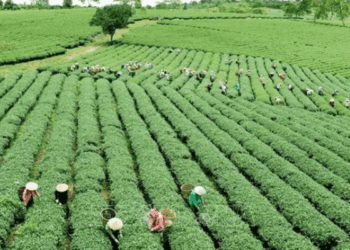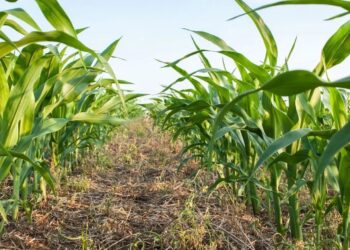Climate change does not only affect food production, decline its productivity, it’s also taking a toll on how food ends up on our tables and how safe it is to eat.
For years, Nigerian farmers battle rising temperatures, erratic rainfall and sometimes prolonged dry spells but more dangerous threat is growing unsafe food that comes with it.
According to food safety experts at the Food and Agriculture Organization (FAO), climate change is increasingly making it harder to produce food that is not only sufficient, but also safe to eat.
The consequences of unsafe food are far-reaching, especially in food-insecure nations like Nigeria where malnutrition, poor storage infrastructure and weak health systems make the population more vulnerable to illness.
“Today, increasing pressures on the world’s land and water resources are jeopardising humanity’s ability to feed itself, exacerbated by climate change, these pressures are making agriculture a more vulnerable and challenging enterprise,” said food safety specialists Dr. Keya Mukherjee, Mia Rowan, and Dr. Vittorio Fattori of FAO.
From farm to market, the safety of what we eat is being tested by rising temperatures, erratic rainfall, and extreme weather events. Heatwaves stress livestock, floods spread diseases, and higher humidity encourages toxic fungi like Aspergillus flavus, which produces aflatoxins, a poison linked to liver cancer and child stunting.
Aflatoxins are now being detected in regions where they were previously unknown, driven by climate change.
“Changing climatic conditions are facilitating the growth and expansion of agricultural pests,” the experts wrote.
Insects spread fungal spores while damaged crops become easy targets for infection. For Nigeria, a country where maize, groundnuts and rice are staple foods, the threat is dire.
Poor handling after harvest, combined with inadequate storage and transportation, means food may look fresh but be riddled with invisible toxins. Unfortunately, many smallholder farmers and traders lack the tools to detect these dangers.
In a vicious cycle, unsafe food leads to disease, which in turn reduces nutrient absorption and worsens malnutrition. As food becomes scarce due to poor yields and climate-related disruptions, the pressure to consume contaminated crops increases especially in rural communities.
In 2020, FAO released a report titled: “Climate Change: Unpacking the Burden on Food Safety,”which reviewed how climate-related hazards, like aflatoxins, heavy metals, and foodborne bacteria are rising and shifting in unpredictable ways. For instance, warming oceans help harmful bacteria like Vibrio flourish, contaminating seafood, while floods spread cholera and other diseases into crops grown in flooded land.
For Nigeria, where agriculture is both a lifeline and a livelihood, these risks threaten national food security and public health.
Farmers already face reduced yields and rising costs due to erratic weather. Now, they must contend with the growing likelihood that their produce could be dangerous even if it looks fine.
“If climate change is not addressed in food safety planning, even nutritious food can become deadly,” Dr. Mukherjee stated. “Ensuring food safety at every step from farm to fork means that farmers, producers, and the agri-food sector as a whole need to prepare for and respond to threats throughout the supply chain.”
This is especially challenging in Nigeria where regulatory enforcement and laboratory testing capacities are often limited. Many rejected export crops contaminated with aflatoxins or heavy metals find their way back into local markets, exposing Nigerians to health risks unknowingly.
Experts insist that awareness and cooperation are critical. Farmers must be educated on how climate conditions affect food safety, including proper drying, storage, and handling practices. Investment in early warning systems, surveillance, and food safety labs is also essential.
The FAO experts recommend a “One Health” approach an integrated collaboration between agriculture, environment, public health, and trade sectors to track and manage these risks.
“Managing food contamination risks under climate change requires the engagement of various actors in the food chain,” they wrote.
According Dr. Mukherjee, “Extreme events are becoming more frequent, severe, and unpredictable. Such incidents destroy fields, disrupt food chains, cause food shortages, and in almost all cases increase the occurrence of foodborne hazards.”





